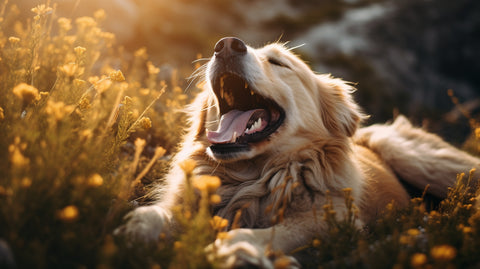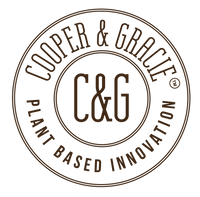Why is My Dog Constantly Licking? Understanding and Addressing the Issue
Introduction
Dogs are known for their quirky habits, and one common behaviour that leaves many pet owners puzzled is excessive licking. While occasional grooming is normal for dogs, when it becomes an obsessive habit, it can be a cause for concern. In this article, we will explore the reasons behind why your dog won't stop licking and what you can do to address this behaviour.

Understanding Normal Dog Licking
Before delving into the potential reasons for excessive licking, it's essential to differentiate between normal and abnormal licking behaviour in dogs.
Normal licking includes routine grooming, cleaning wounds, and showing affection.
However, when licking becomes incessant and disrupts your dog's daily life, it's time to investigate further.
Causes of Excessive Dog Licking
-
Allergies: One of the most common reasons for constant licking is allergies. Dogs can be allergic to certain foods, environmental factors like pollen, or even specific materials like carpet fibres. This can lead to itchy skin, prompting excessive licking to relieve discomfort.
-
Pain or Discomfort: Dogs may lick a specific area if they are experiencing pain or discomfort. This can be due to an injury, arthritis, or an underlying medical condition.
-
Anxiety and Stress: Dogs often use licking as a way to self-soothe when they are anxious or stressed. It's their way of coping with their emotions, similar to how humans might bite their nails.
-
Boredom: Just like humans, dogs can get bored, and licking can be a way to pass the time. Providing mental and physical stimulation can help reduce this behaviour.
-
Hunger or Thirst: Some dogs may lick excessively if they are hungry or thirsty. Ensure your dog's basic needs are met to rule out this possibility.
-
Obsessive-Compulsive Disorder (OCD): Dogs can develop OCD-like behaviours, including excessive licking, as a result of genetics or past trauma.
-
Dental Issues: Dental problems, such as gum disease or a foreign object stuck in their teeth, can lead to excessive licking as a way to alleviate oral discomfort.
Addressing Excessive Licking
Now that we've identified some common causes let's discuss how to address your dog's excessive licking:
1. Consult a Veterinarian
If you notice that your dog's licking has become persistent and disruptive, the first step is to consult with a veterinarian. They can rule out any underlying medical conditions and provide guidance on treatment options.
2. Address Allergies
If allergies are suspected, your vet may recommend allergy testing to identify triggers. Avoiding allergens and providing appropriate medication or dietary changes can help alleviate itching and reduce licking.
3. Manage Anxiety
For dogs with anxiety or stress-related licking, behaviour modification techniques, training, and, in some cases, medication may be recommended to manage their emotional well-being.
4. Provide Mental Stimulation
Keep your dog mentally engaged by providing interactive toys, puzzles, and regular exercise. A mentally stimulated dog is less likely to engage in obsessive behaviours like excessive licking.
5. Dental Care
Regular dental check-ups and proper oral hygiene can prevent dental issues that may trigger excessive licking. Ensure your dog's teeth are clean and healthy.
Conclusion
Understanding why your dog won't stop licking is the first step in addressing this behaviour effectively. Whether it's allergies, pain, anxiety, or boredom, there are various strategies to help your furry friend lead a happier and healthier life. Remember, always consult with a veterinarian for personalised advice on your dog's specific situation.
FAQs
1. Is it normal for dogs to lick themselves?
Yes, it's normal for dogs to groom themselves through licking. However, excessive licking that leads to skin irritation or disrupts their routine may indicate an underlying issue.
2. Can I use bitter sprays to stop my dog from licking?
Bitter sprays can be used as a deterrent to discourage licking in specific areas, but it's essential to address the root cause of the behaviour as well.
3. My dog started licking more after a recent move. Is this related to stress?
Yes, changes in environment, such as moving to a new place, can lead to stress-related behaviours, including excessive licking. Providing comfort and stability can help ease this transition.
4. How can I tell if my dog's licking is due to allergies?
If your dog exhibits other allergy symptoms like itching, redness, or digestive issues, it's a good indicator that allergies may be the cause of their excessive licking.
5. When should I seek professional help for my dog's licking behaviour?
If your dog's licking becomes incessant, causes skin irritation or bleeding, or significantly disrupts their daily life, it's time to consult a veterinarian for a thorough evaluation and guidance on treatment options.
Unlock a Happier and Healthier Life for Your Furry Companion with Cooper and Gracie!
Here at Cooper and Gracie, we understand the love you have for your four-legged friend. We're committed to helping you provide the best care possible, and our range of dog products is designed with your pet's well-being in mind. Whether it's addressing excessive licking, allergies, or any other pet-related concern, we've got you covered. Don't wait any longer to see your pet's health and happiness soar. Join us on this journey towards a brighter future for your furry companion. Click the link below and discover a world of premium pet care solutions that will make tails wag and hearts sing. Trust in Cooper and Gracie – because your pet deserves the very best.
Related Posts
My Dog's Breath Smells Like Fish

